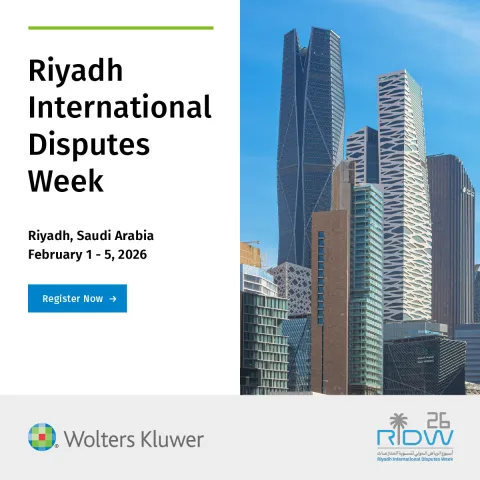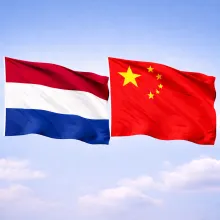Award Rendered in Multimillionaire Chilean Salmon Saga: Hot Topics and Set-Aside Key Aspects
November 19, 2025
The salmon industry is one of the most important industries in Chile. In 2019, Australis Seafood (“Australis”), a major salmon producer, was acquired by Joyvio (“Joyvio” or the “Buyer”), which is part of the Chinese group Legends Holding Corporation, for approximately USD 920 million, via the execution of a purchase agreement (“SPA”) between the Buyer and a group of Chilean companies that owned Australis (“Sellers”). In the SPA, Sellers made several representations and warranties (“R&W”), granting Joyvio the possibility to claim indemnification if these were inaccurate. In 2023, Joyvio submitted a request for international arbitration before the Centre for Arbitration and Mediation of the Chamber of Commerce of Santiago (“Arbitration”), claiming that Sellers fraudulently concealed information during the due diligence process, related to, among other matters, Australis’s salmon production in excess of alleged environmental limitations; and that Australis was not in compliance with environmental regulation, as was guaranteed in the R&W. The dispute is governed by the laws of Chile.
This note analyzes the arbitral award (the "Award") rendered by the arbitral tribunal (the “Tribunal”) and highlights certain issues that should be central in a set-aside application.
The Tribunal Judged a Critical Issue in M&A Litigation
The Arbitration focused on a highly debated topic in M&A litigation: the consequences of the buyer’s knowledge regarding inaccuracies in R&W, particularly when the contract is not governed by “sandbagging” or “anti-sandbagging” clauses.
The Award noted that, at the time the SPA was signed, Australis met the environmental authority’s criteria then in effect (§§195, point (ii), and §216). It also found that these criteria changed after the transaction (§§284, 287, 640). The Tribunal concluded that, while Sellers did not expressly convey the potential change of criteria to Buyer (§383), they did not conceal factual information from Buyer (§381); that Buyer analyzed Australis “in detail” (§226) prior to closing; and that both parties had access to the same information regarding Australis’s production levels (§330). However, the Tribunal observed that certain Australis’s executives had “suspicion” on potential future change in regulatory criteria, which Sellers did not disclose (§385); and concluded that Sellers made an “incomplete”—but not false—R&W when stated, in the SPA, that Australis was in compliance with environmental law (“Environmental R&W”).
During the Arbitration, both parties submitted legal reports prepared by Chilean leading scholars, addressing the consequences of Buyer’s knowledge vis a vis the “incompleteness” of the Environmental R&W. The Tribunal, despite finding a breach on said R&W, adopted Sellers’ position, holding that the information disclosed during due diligence “allowed to assess and give a rather restricted meaning to the representations and warranties.” (§328). Since the breach was not produced as a consequence of concealment or fraud, the Tribunal rejected Buyer’s main request for the SPA to be undone and for Sellers to restitute the paid price (approximately USD 920 million) plus damages (for a total of USD 1.4 billion).
Nonetheless, the Tribunal decided to grant Buyer an adjustment on the SPA’s price based on Australis’s “adjusted” production levels in accordance with the new criteria implemented by the authority after the transaction. This seems to be inconsistent in light of the Tribunal’s own findings and Buyer’s requests for relief. Joyvio’s requests for relief were expressly based on the alleged existence of fraud or concealment, which the Tribunal disregarded; and the Buyer did not request alternative reliefs, not based on fraud, that could have entitled them to a price adjustment.
Next Chapter of the Salmon-Saga: Application to Set Aside the Award
Since the Arbitration is governed by Chilean Law N°19.971 on International Commercial Arbitration (“LACI”), which is based on the 1985 UNCITRAL Model Law, an application to set aside the Award (“Application”) can be filed before the Santiago Court of Appeals (the “Court”) within three months.
In Chile, the Court has dismissed all Applications—over twenty so far.1 Because of this, Chile is often referenced as a safe seat for arbitration, where awards are consistently recognized and enforced. Though debatable, effective judicial review of award validity is essential.
In a set-aside application, the Court will review its validity under LACI’s annulment grounds, such as validity of the arbitration agreement; decisions in the Award that exceed the terms and scope of the arbitration agreement; infringement of Chilean public policy; among others. Although the Court has traditionally applied a high threshold requiring that the alleged ground be “serious and manifest,” we have identified various aspects within the Award that could meet such criteria.
Recently, Sellers filed an application to set-aside the Award; Buyers, however, did not challenge it. The Sellers invoked multiple grounds, which, at their core, coincide with three serious concerns also previously identified by the authors, referred below.
First, in the Award, the Tribunal seems to provide its judgement based on claims and causes of action distinct from those submitted by Buyer in its claim, which could amount to the commonly known “extra petita.” The Award rejected the indemnification relief based on the accused fraudulent breach of the SPA that was submitted by the Buyer but granted a price adjustment which was not requested (§293). Thus, it seems that the Tribunal based its decision on claims that were not submitted (i.e., adjustment of price), and whose factual grounds are different (i.e., breach of duty of care, negligence) to those applicable to the claims that were indeed submitted (fraudulent breach).
Similarly, the Award appears to contain inconsistencies among its findings, considerations, and determinations—particularly regarding Buyer’s extent of knowledge about Australis’s production levels. For example, in §330, the Tribunal determined that Joyvio, as Buyer, was aware of the risk that authorities could impose new regulatory requirements, and that both parties had the same information. However, in §385, the Award references suspicions held by certain executives that regulatory criteria could change, which allegedly had not disclosed. Such contradictions, on an issue central to the dispute, could amount to a breach of due process, and, consequently, an infringement of the Chilean public policy.
In addition, the Award disregarded the SPA’s cap for Sellers’ responsibility (5% of the SPA’s price) despite denying the existence of fraud. Contracts, as a tool for individuals to organize their interests and generate commercial exchanges, are a fundamental part of Chilean public policy. Given the magnitude of the business that was transferred through the SPA (USD 920 million), the distribution and limitation of risks that the parties negotiated and agreed upon should be a crucial issue. The fact that the Tribunal did not respect the liability limit provided in the SPA, and the lack of a legal ground for this, could constitute a violation of Chilean public policy. In fact, the only case in which a Court’s judge rendered a dissenting opinion in favor of an Application was based on an award’s lack of substantiation and consistency between the tribunal’s consideration and decisions (see Santiago’s Court of Appeal, Case Docket N° 4.394-2019, decision rendered on December 30, 2019).
Interestingly, Sellers submitted legal reports from Gary Born, Yves Derains, and Jose María Alonso, leading international arbitration experts, along with their application to set aside the Award. All three supported the challenge and sustained that the Award should be set aside.
Gary Born went even further, noting the following:
“I should emphasize that annulment in this case is of paramount importance to safeguard the integrity of the arbitral process in Chile and preserve Chile’s future good standing as an arbitral seat, which could otherwise be significantly damaged. Annulment will also deter decisions like the CAM Award, which is in many respects among the most egregiously flawed rulings that I have seen in my career, and will properly incentivize arbitrators in Chile and elsewhere to do their job correctly.”
Conclusion
The Award presents aspects that could perfectly lead the Chilean courts to accept, for the first time in history, an application to set aside an award rendered in an international arbitration. The final decision is expected by late 2026.
- 1
Liat Tapia & Karl Conrads, A Review of the Circumstances Invoked as Grounds for Nullity under the LACI, in 20 Years of Law No. 19.971 on International Commercial Arbitration in Chile (2025).
You may also like











